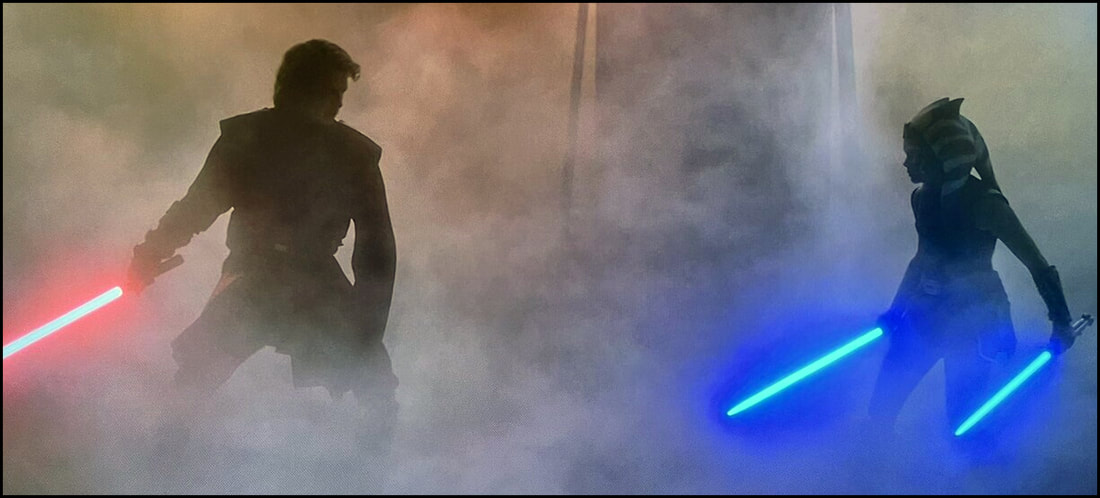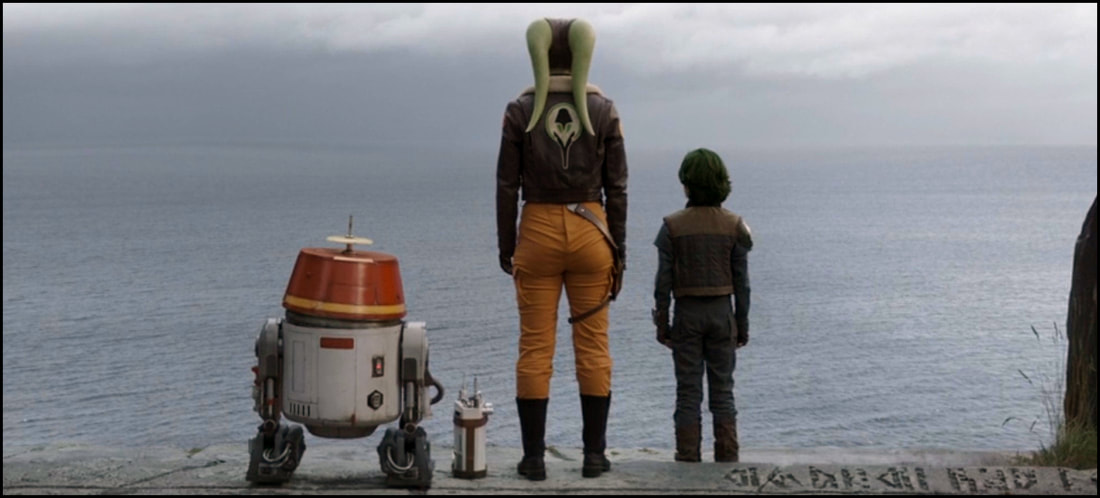No, no, and no: I’m not gonna give you a rant about toxic fandom, and that’s because I don’t think such a message is fundamentally productive. While there might be some benefits from reaching across the aisle for common ground, I’ve always believed that was never the purpose of an authentic critic – meaning one who both thinks and writes about film and television as an art form. Instead, I insist that it’s my job to only express my own opinions: if I’m as thorough and proficient as I should be, then, minimally, you’ll have something to think about after I’m done, and that’s my only purpose here. Critics don’t exist – or shouldn’t exist – to make you like a property; instead, they try to serve a wider discourse, one encouraging watchers, writers, readers, and all of fandom to reflect on the merits and disadvantages of any art form. That’s criticism in a nutshell, folks. Call it Criticism 101. At least, that’s the case as it applies to being a fan.
Still, the downside is that there’s an audience that waits patiently on the Information Superhighway with no other purpose than to rise up, gather pitchforks, light the torches, and dub those who disagree with them to be ‘witches’ in some (cough cough) cultural ‘call to action’ that they believe (cough cough) better serves fandom. Most of these heretics – if not lunatics – probably never built a blog, a website, a vlog, or a reasonably compelling argument and yet still insist that their judgment is superior, perhaps because he or she feels that the “safety in numbers” outweighs anything the Devil’s Advocate might have to say. Much like Captain Kirk famously told Captain Spock that reality probably lies somewhere in between, fandom would do well to consider such wisdom; stop hating on those who disagree because – someday – you, too, might feel otherwise … and you might feel oppressed if that crowd you once stood shoulder-to-shoulder with comes calling for your scalp.
Yes, yes, and yes: fandom requires and instills passion.
But never forget to take a calming breath before you speak … and/or think.
Star Wars fandom, in particular, would do well to just dial it back when trying to discuss the Disney+ streaming property that is Star Wars: Ahsoka. Its fifth episode – “Shadow Warrior” both aired last night on the platform as well as played in select theaters nationally, a theatrical event that kinda/sorta has the feel of desperation so far as this reviewer is concerned. If the ratings are so positive (and I don’t think they are, but I’m not out to prove anything here), then why the need for an event in theaters? Is this … wishful thinking? Are you trying to convince audiences of something otherwise? Or is this an honest expression of goodwill, giving diehard enthusiasts the chance to bask in the silver screen glow of something so mind-blowing that it deserves such exposure?
Well … much like the Ahsoka story, I’m just not following what’s honestly happening.
Shadow Warrior apparently was little more than a fever dream, a kinda/sorta out-of-body experience the lead character endured with ‘fall’ at the hands of ‘dark Jedi’ Baylan Skoll in Part 4. Instead of clarifying the who’s, where’s, and what’s of Ahsoka coming face-to-face with her former mentor Anakin Skywalker (reprised in the episode by Hayden Christensen), audiences were instead treated to more of the same, that being more of the nebulousness and ambiguity of just where is our Togrutan hero. Is she dead? Is she in-between? Is this Heaven? Is this Hell? Why does it look so much like the World Between Worlds? Instead of giving us answers we could wrap our head around, writer/director Dave Filoni pretty much played with our emotions with pullbacks to experiences that may or may not have put Ahsoka on her present path … or was it all about finding peace with knowing she was trained by the Jedi who, basically, both destroyed the galaxy and yet put the Force in balance?
Erm … so where’s the ‘warrior’ of “Shadow Warrior?”
Despite what history revisionists will tell you, wars aren’t won by pacifists. No sit-in ever stopped Germany, and no amount of sign-waving deterred Japan from striking America first at Pearl Harbor. I do know – as Yoda proclaimed in The Empire Strikes Back – that in the galaxy far, far away that wars apparently do not make warriors great; but it’s this kind of moral opacity that sounds good on screen (and in management seminars) and ultimately is left up to the interpretation of the student. It means whatever you want it to mean, and – as a factivist – I’m not sure how much storytelling is actually positively served by trafficking in the gray areas. Darth Vader – her master – would have struck Ahsoka down if Ezra Bridger hadn’t ‘cheated’ time by pulling her out of the moment famously in Star Wars Rebels, and I think it’s this feel-good chicanery that is kinda/sorta miring this current series in a spot that – thematically – is going nowhere fast.
Now … don’t get me wrong. I’ve no major bones to pick with Ahsoka, Dave Filoni, and/or the current state of Star Wars. As I tried to convey above, that isn’t my job as a critic. I’m not here to convince you that X is good or bad; I can only reflect upon what I see in the adventure and maybe how it bodes within the broader mythology. In fact, I’ve always liked Ahsoka; but – as I’ve said – I just don’t quite understand why she’s changed as a person between Star Wars: The Clone Wars and Star Wars Rebels. She obviously reached a super-advanced level of maturity, and I’m at a loss as to understand perfectly well why. How did this happen? Why did this happen? I get that she evolved; I’m just missing the pieces to grasp and appreciate her evolution.
And, of course, it’s always great to see Star Wars, too, take some steps in different directions; and many of these new twists and turns have been engineered by Filoni himself. He’s definitely crafted some incredible arcs within The Clone Wars and Star Wars: The Bad Batch (I struggle with Rebels because I find some of it uneven), and he’s been blessed by even George Lucas with the task of deepening this universe in ways that merit some honest acclaim. But … we’ve never been told in Ahsoka why so much effort needs to be expended to find Ezra Bridger in the first place … in fact, so far as the audience has been told there’s no way to know whether even he and Grand Admiral Thrawn (except for plot leaks) are even alive out there wherever they are … and that’s a narrative weakness no matter what anyone argues.
Why?
Well, without such assurances, characters have been launched on this crusade either in hope … or fear.
As Star Wars fans, we know that the films and shows have warned us about doing anything out of fear because – dum dum dum – fear leads to the Dark Side. If that’s true, then why does it seem like the driving motivation behind so much of these activities rests firmly on the shoulders of alleviating one’s fears? Sabine Wren fears Ezra is lost. Hera Syndulla fears that the New Republic isn’t listening to her. Ahsoka fears that she let Anakin down. Why, even Huyang fears that Ahsoka and Sabine didn’t listen to her. And … every single one of them fears Thrawn’s return.
Huh.
But … hey! It was great to see those purrgil, am I right?
(All kidding aside, it was great to see the purrgil.)
In the interests of fairness, I’m pleased to disclose that I’m beholden to no one to provide a review of Star Wars: Ahsoka streaming series as I’m presently a subscriber to Disney+ … which might be changing in the future as their programming has really gotten a bit stale.
-- EZ



 RSS Feed
RSS Feed